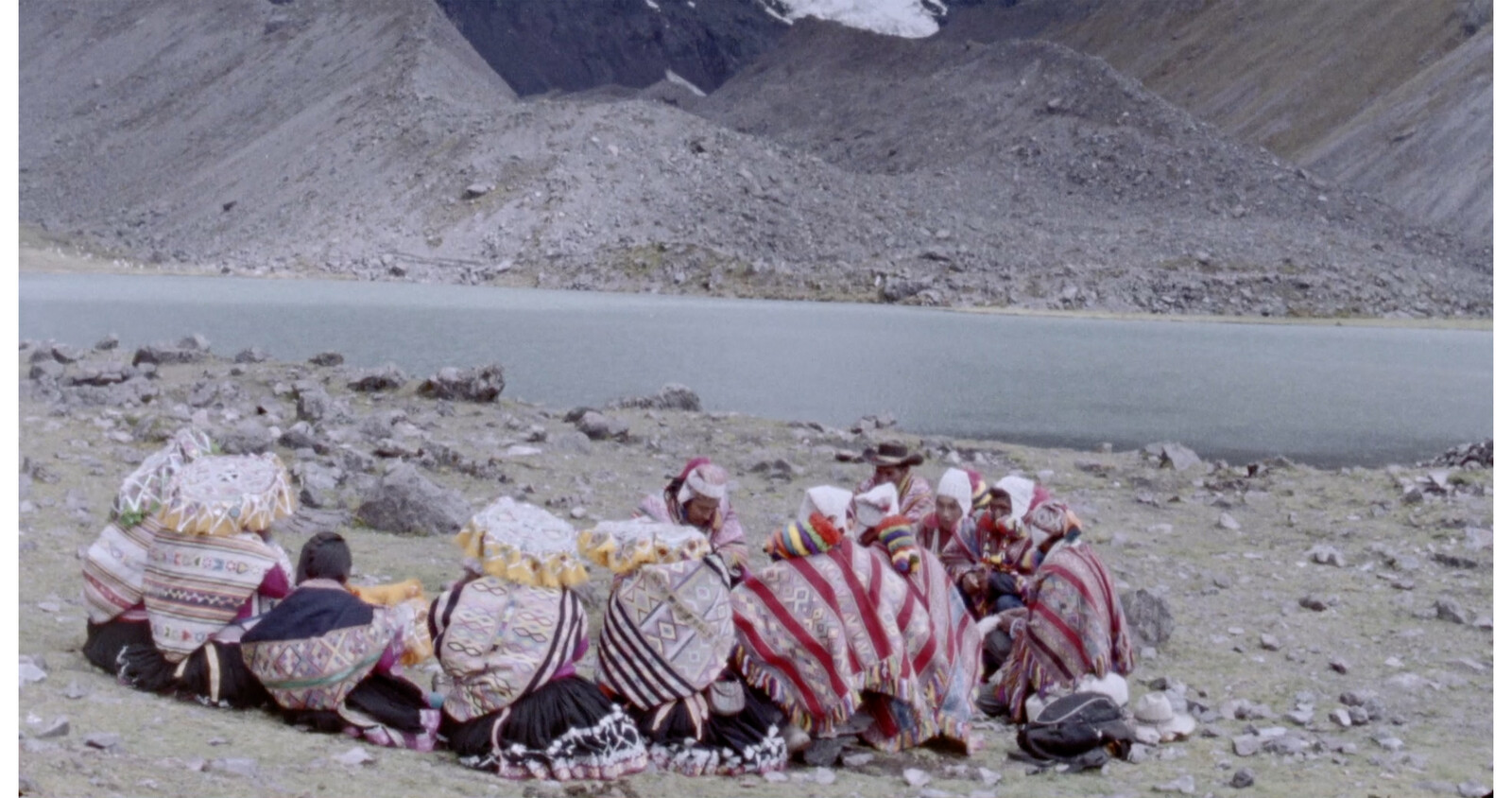Evoking a Space Beyond Cinema
February 16–June 16, 2024
Parque de la Exposición
Av. 9 de Diciembre 125
15046 Lima
Peru
The Museo de Arte de Lima—MALI and proyectoamil are pleased to present Evoking a Space Beyond Cinema, the first monographic museum exhibition by Rosa Barba in Peru. The exhibition features Aggregate States of Matters (2019), a film shot in the Peruvian Andes with the support of proyectoamil, in addition to a selection of her recent work.
In 2002, Rosa Barba had one of her first exhibitions at the Sala Luis Miro-Quesada Garland in Miraflores (Lima) which started her enduring connection with Peru. During that visit Barba travelled extensively throughout the country, and in 2018 she visited the country again to study and film the communities and territories affected by the melting glaciers of the Andes. Her aerial filming of the Peruvian mountains and deserts acts as a way to read the landscape creating a tapestry that tells a story outside the constraints of linear progression.
In 2019, she produced Aggregate States of Matters, a 35mm film shot in the Andes which deals with the increasing impact of climate change on remote areas. At its core, the film pivots on the ambivalent negotiation between the binary idea of nature and culture, oscillating within the contemporary discourse on the environment, and its complex layers based on scientific, philosophical, spiritual and cultural approaches. For Aggregate States of Matters, Barba worked with communities that are affected by glacier melting and its geological time becoming present today. In a cautious, yet scrutinized exploration, the film illustrates blurring and melding boundaries between human and non-human actors. While the indigenous population profits from the benefits and wealth of farming, which rapidly increase due to changing environmental conditions, they concurrently face fast-moving challenges in their spiritual and cultural lives.
As with other films by the artist, the work situates the notion of the landscape within a broader cultural context to remind us of how the complex human interventions in the environment impact our world, and hence shifts our perspective on history.
The exhibition also includes a selection of her recent films and installations: Inside the Outset: Evoking a Space of Passage (2021), The Long Poem Manipulates Spatial Organizations (2014), Radiant Exposures—Facts Run on Light Beams These Days (2022) and Weavers (2021). On the occasion of the exhibition, Printed Cinema #23, a new edition of her publication series which, since 2004, has acted as a kind of readable and portable film, to express and dismantle the cinematic organism and furthers her inquiries into the ambiguous nature of reality, memory, and landscape while probing the precarious relationships between historical record, personal anecdote, and fictional narrative.
The exhibition will be on display at MALI from February 16 to June 16, 2024.
This exhibition is co-organized by the Museo de Arte de Lima—MALI and proyectoamil. It was made possible through the collaboration of the PUCP Film Archive and Alta Tecnología Andina—ATA. The exhibition will be accompanied by a wide-ranging program of events and guided tours.
Curator: José-Carlos Mariátegui.
Rosa Barba is an artist and filmmaker. Suspended between dichotomies—permanent and impermanent, real and fictional, obsolescent and modern, conceptual and concrete, alien and familiar, Rosa Barba’s multiform practice encompasses films, sculptures, installations, live-performances, text, sound, and site-specific interventions that analyse the ways space is articulated by time and language. Her work is part of numerous international collections and her forthcoming and recent solo exhibitions include: Calouste Gulbenkian Museum, Lisbon (2026), MoMA, New York, (2024), MAXXI, Rome, (2024), Boijmans Museum, Rotterdam (2024), Centre Pompidou, Paris (2023), Tate Modern, London (2010–23), PICA, Perth Australia (2023), Villa Medici, Rome (2022), Neue Nationalgalerie, Berlin (2021–22), Cukrarna, Ljubljana (2021, 2022), and at Biennials such as the 53rd and 56th Venice Biennale, Sao Paolo (2016), Sydney (2014) and Performa (2013). She was awarded the Calder Prize in 2020, and the International Prize for Contemporary Art, of the Fondation Prince Pierre de Monaco (2015).
The Museo de Arte de Lima—MALI, is a private, non-profit cultural organization devoted to the promotion of the visual arts in Peru. MALI houses the only representative survey collection of Peruvian art, consisting of over 19,500 artworks. This vast permanent collection, witness to several centuries of cultural transformations, includes pre-Columbian and colonial objects as well as modern and contemporary objects. The museum has directed its efforts to opening up new perspectives in Peruvian art history, through academic and cultural research, and its dissemination through exhibitions, publications and public programs.
proyectoamil is a fluid-structure based in Peru and Switzerland whose founding mission is to enable both internationally renowned and emerging artists to find a way to materialise projects, creating a space in which the public can encounter and engage with distinct critical content.

